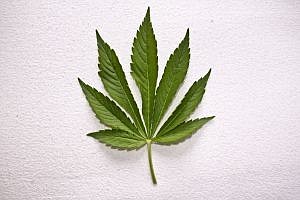- April 24, 2024
-
-
Loading

Loading

A proposed constitutional amendment to allow the medical use of marijuana will go before Florida voters in November, following the state Supreme Court's narrow approval of the ballot language Monday.
The ballot title for the proposed amendment is ― Use of Marijuana for Certain Medical Conditions, and the ballot summary, which is limited by law to 75 words, will read as follows:
“Allows the medical use of marijuana for individuals with debilitating diseases as determined by a licensed Florida physician. Allows caregivers to assist patients’ medical use of marijuana. The Department of Health shall register and regulate centers that produce and distribute marijuana for medical purposes and shall issue identification cards to patients and caregivers. Applies only to Florida law. Does not authorize violations of federal law or any non-medical use, possession or production of marijuana.”
State Rep. Travis Hutson said the language in the proposed amendment that concerns him is the use of the word “debilitating.”
Hutson’s concern with this language is that it doesn’t look like there needs to be parental consent.
“What if a 13-year-old walks into a doctor’s office, and the doctor says, 'Here’s a card without parental consent'?" he asked. “That’s how I read it.”
Ultimately, it’s up to the voters.
“It’s up to the people to see how they want their state to be run,” Hutson said. “I never want to stand in front of the people.”
One Palm Coast voter who is on board with the amendment is Ron Long.
“I think the biggest problem is that it's never been explored because it's illegal,” he said. “By making it medically legal, that will allow real studies to be done, and we can start developing it.”
Another voter, Steve Casey said he is torn on the issue. He said his sister died of cancer, so he can see how the legalization for medical purposes makes perfect sense. However, the argument that legalization could lead to decriminalization and eliminate the drug war is a stretch for him.
Casey also said he can see where marijuana can be a gateway for abuse of other drugs.
Since the medical marijuana movement began, 20 states and the District of Columbia, starting with California in 1996, have legalized medical cannabis or effectively decriminalized it.